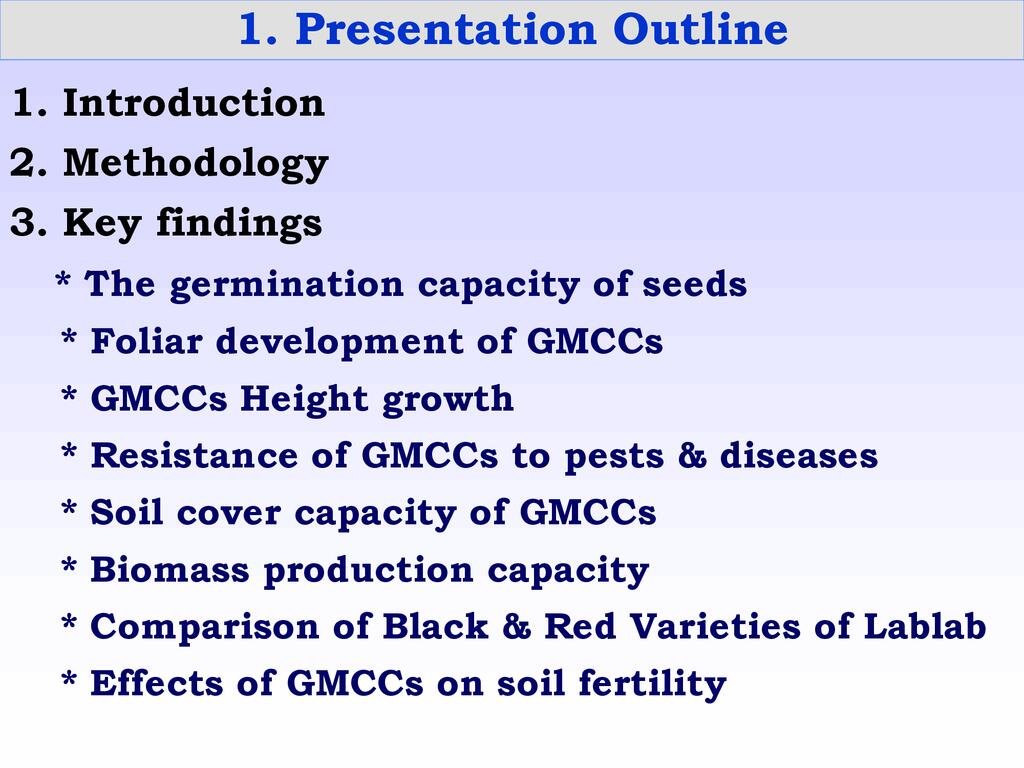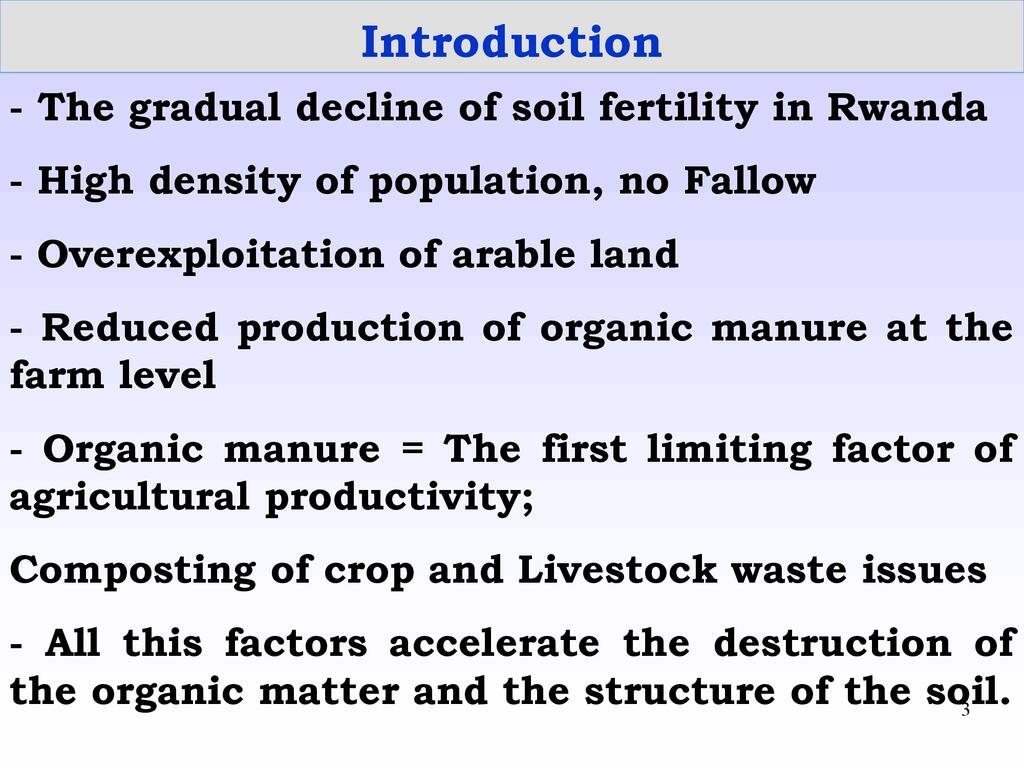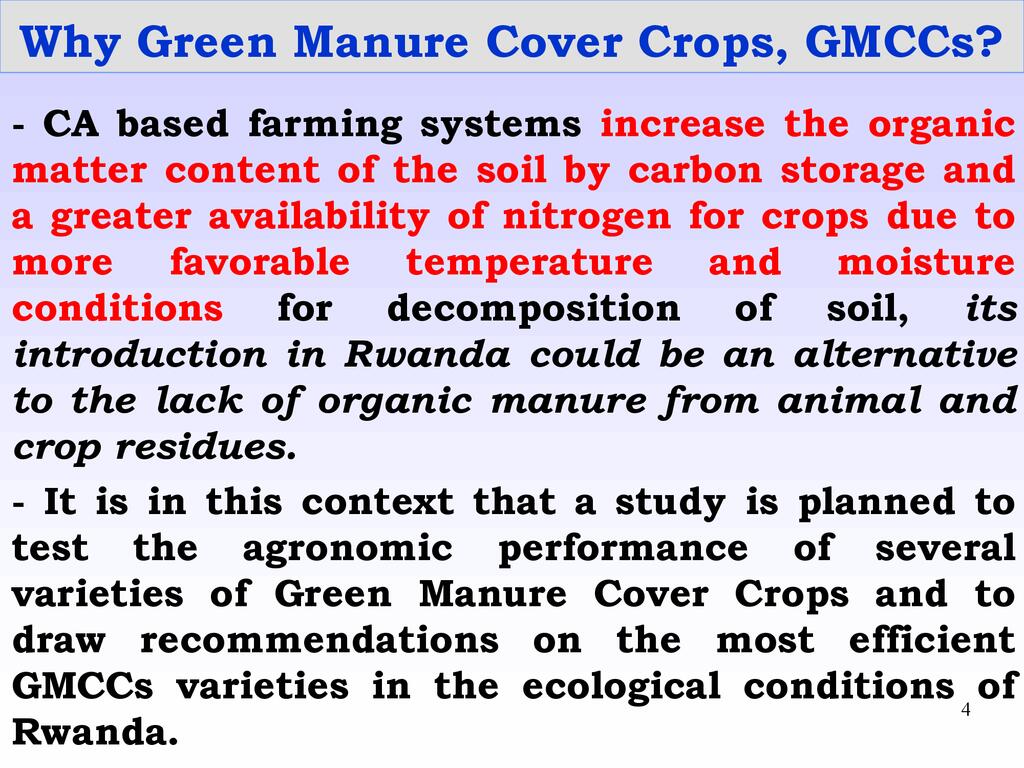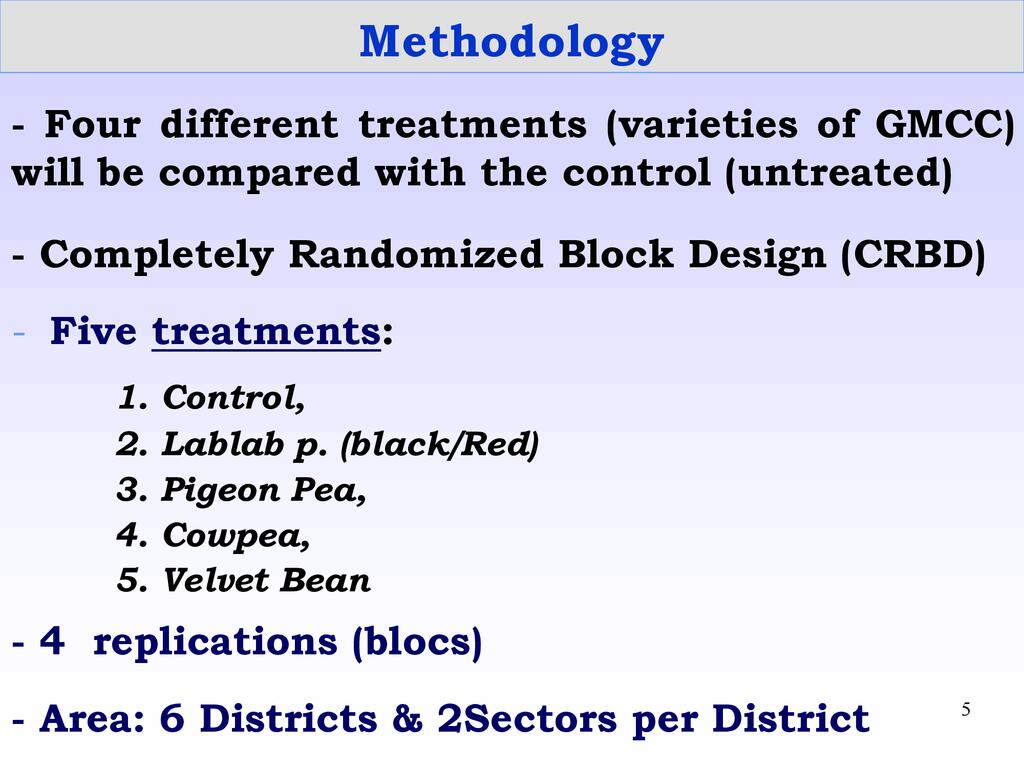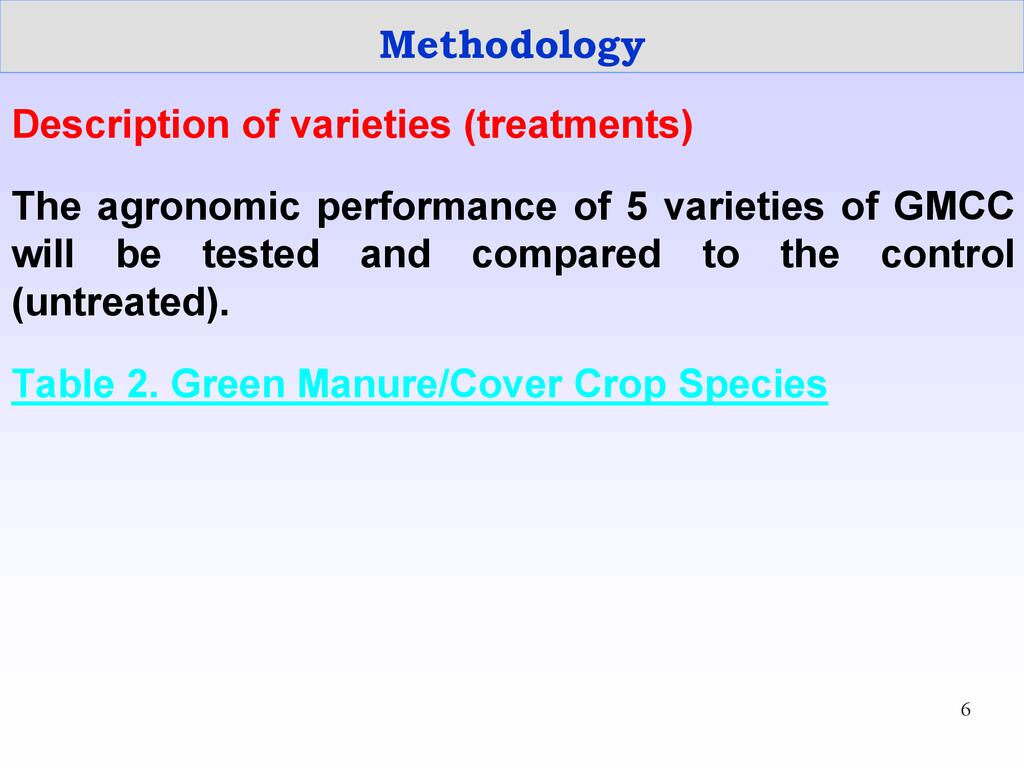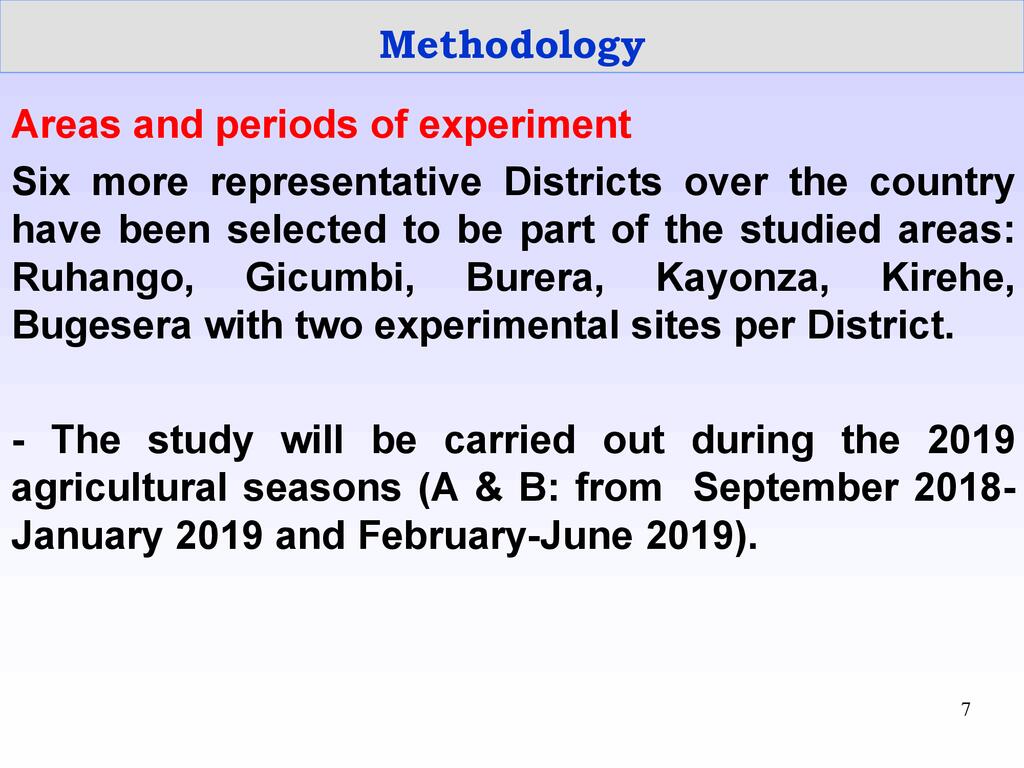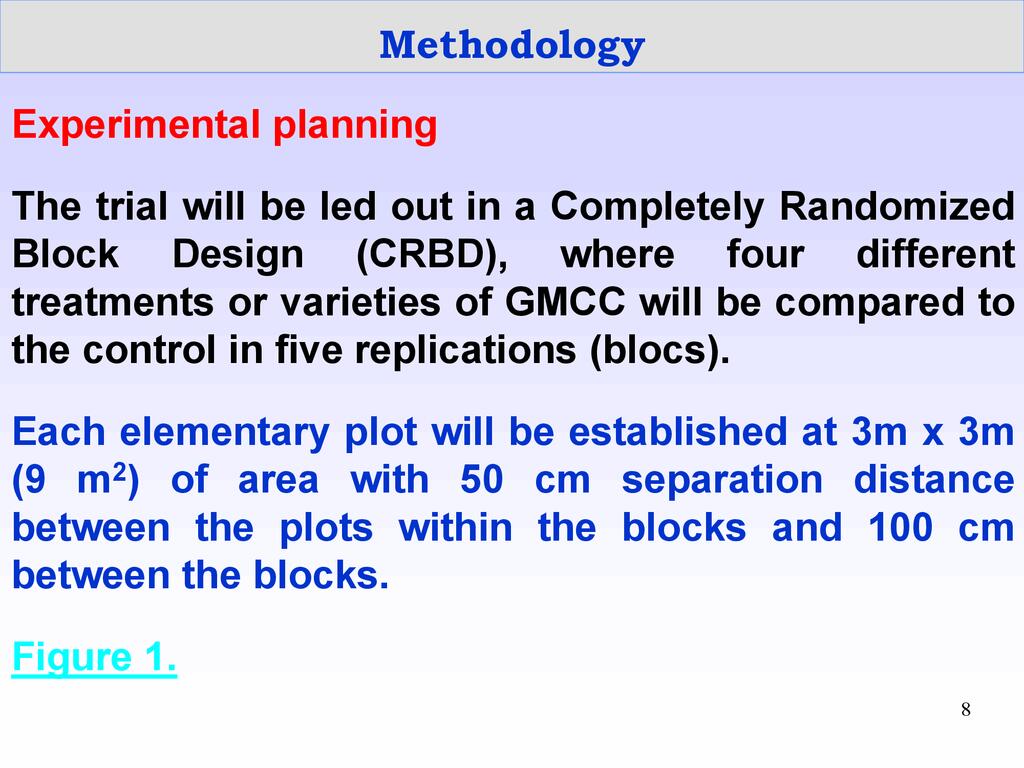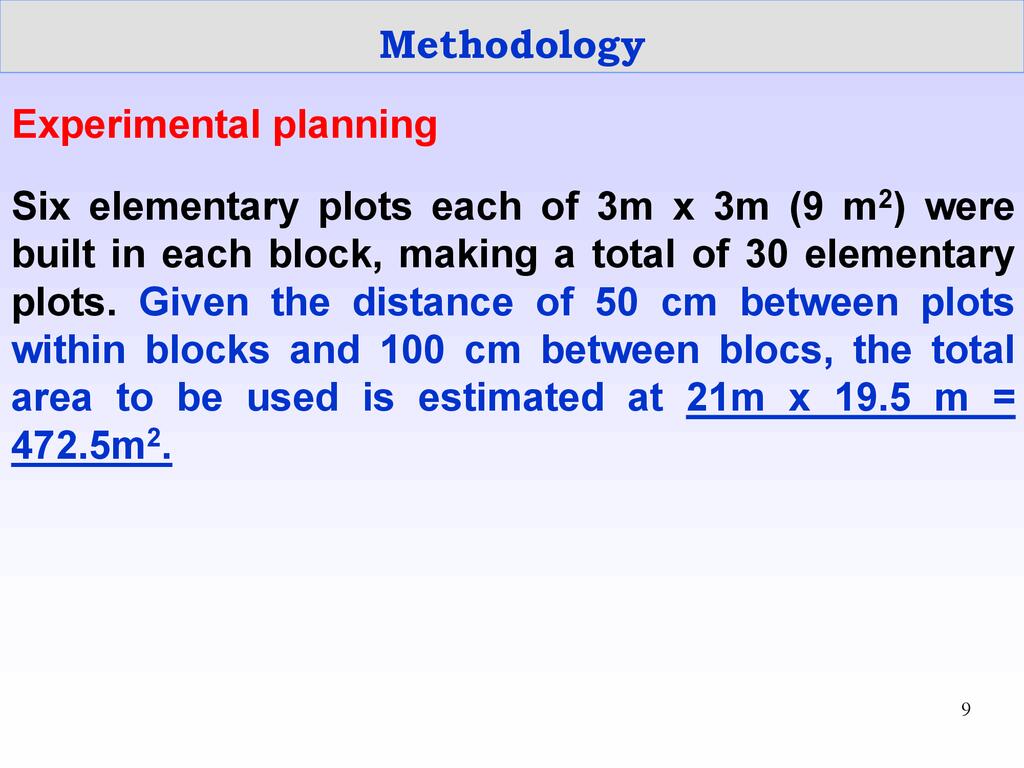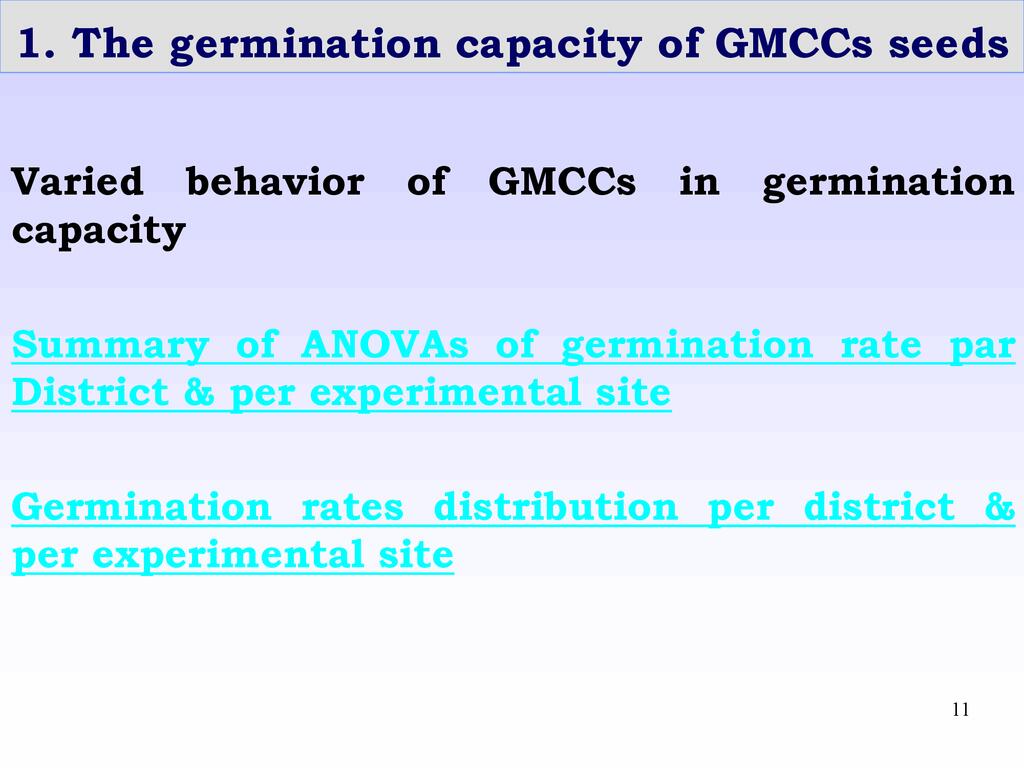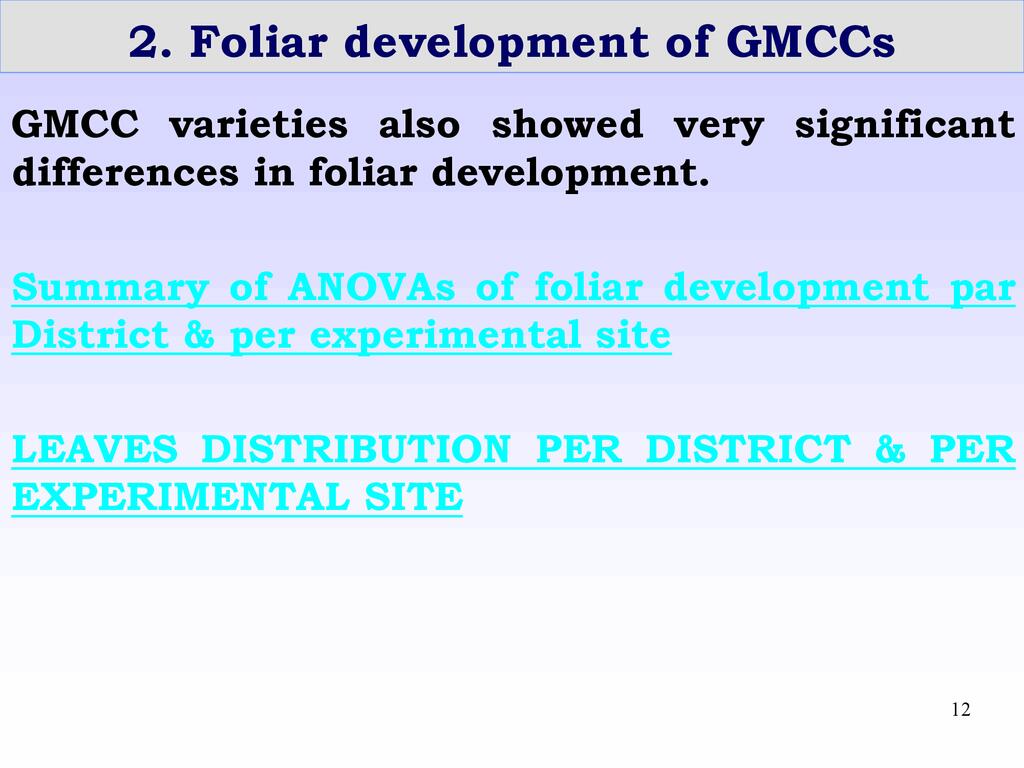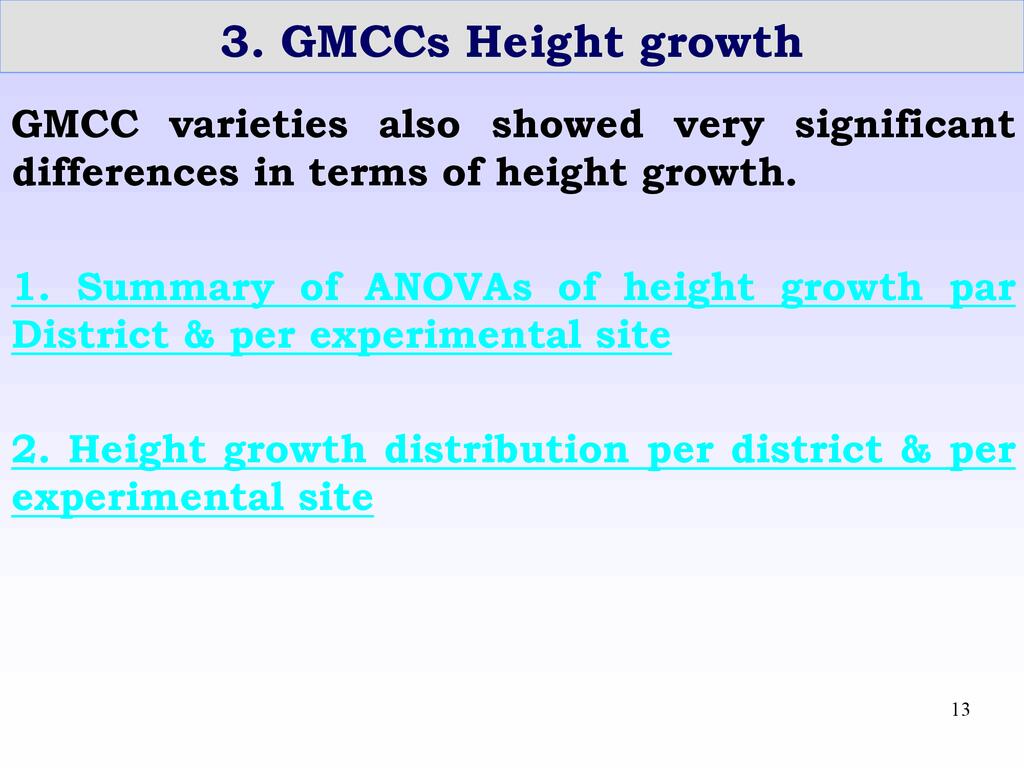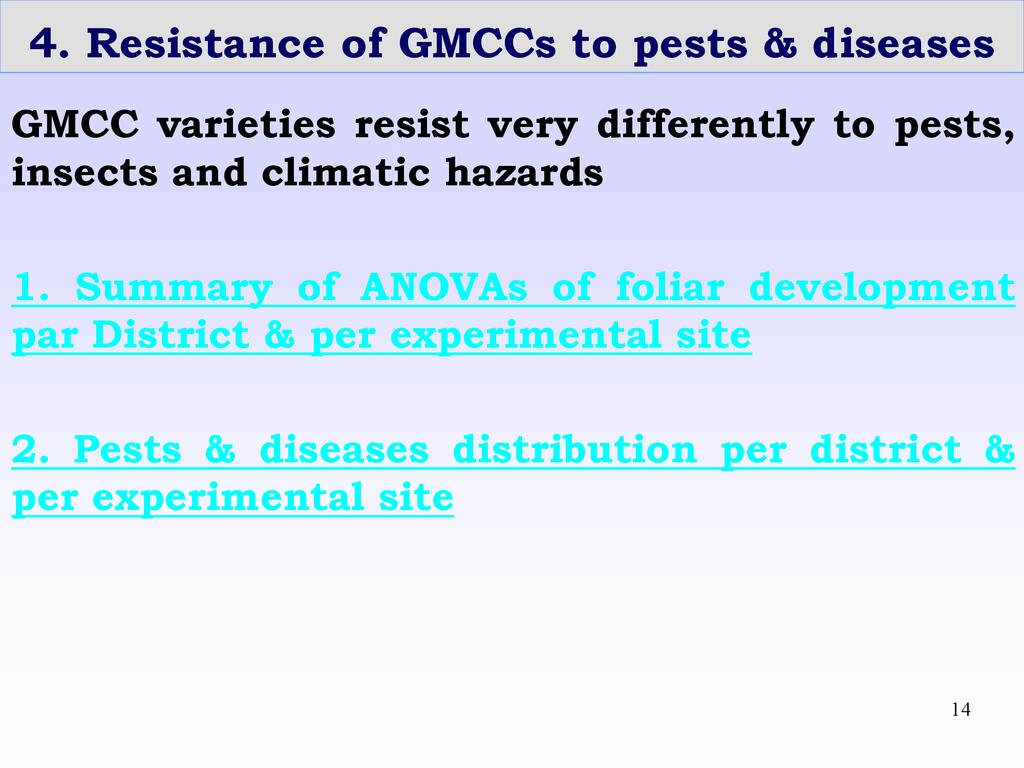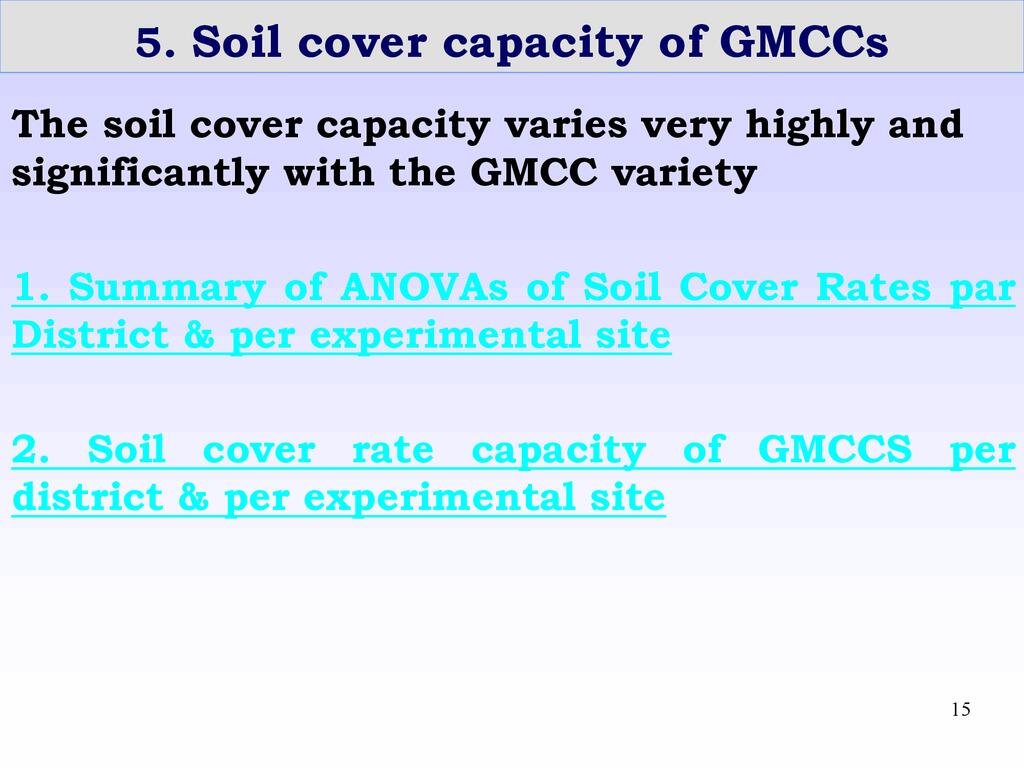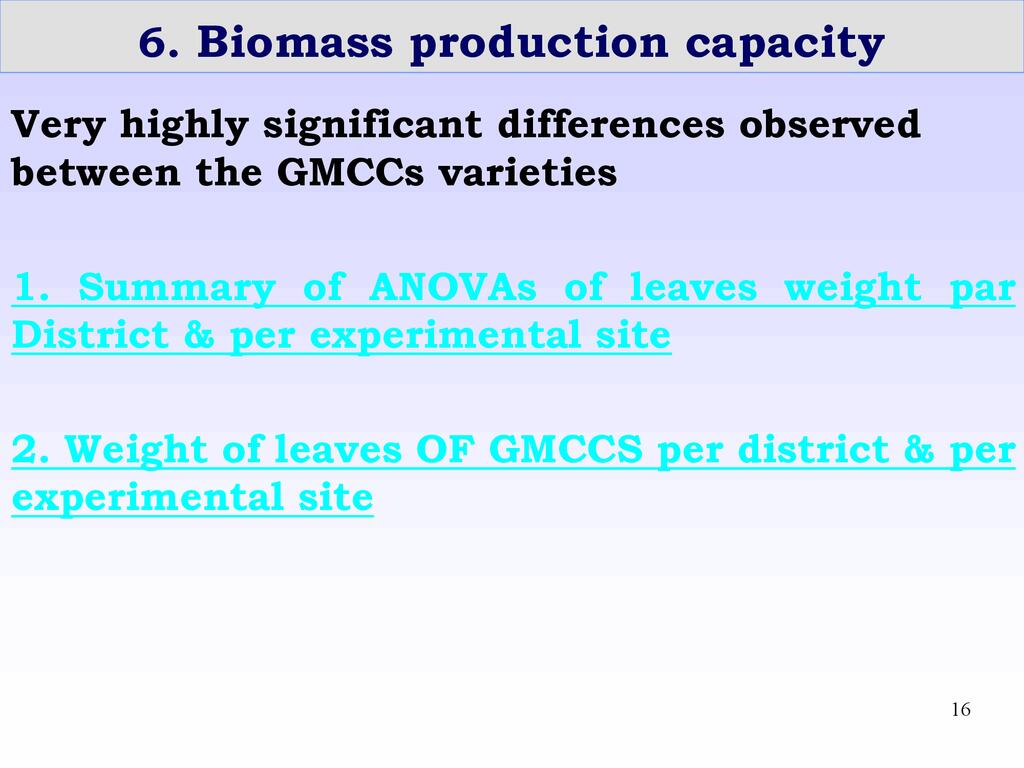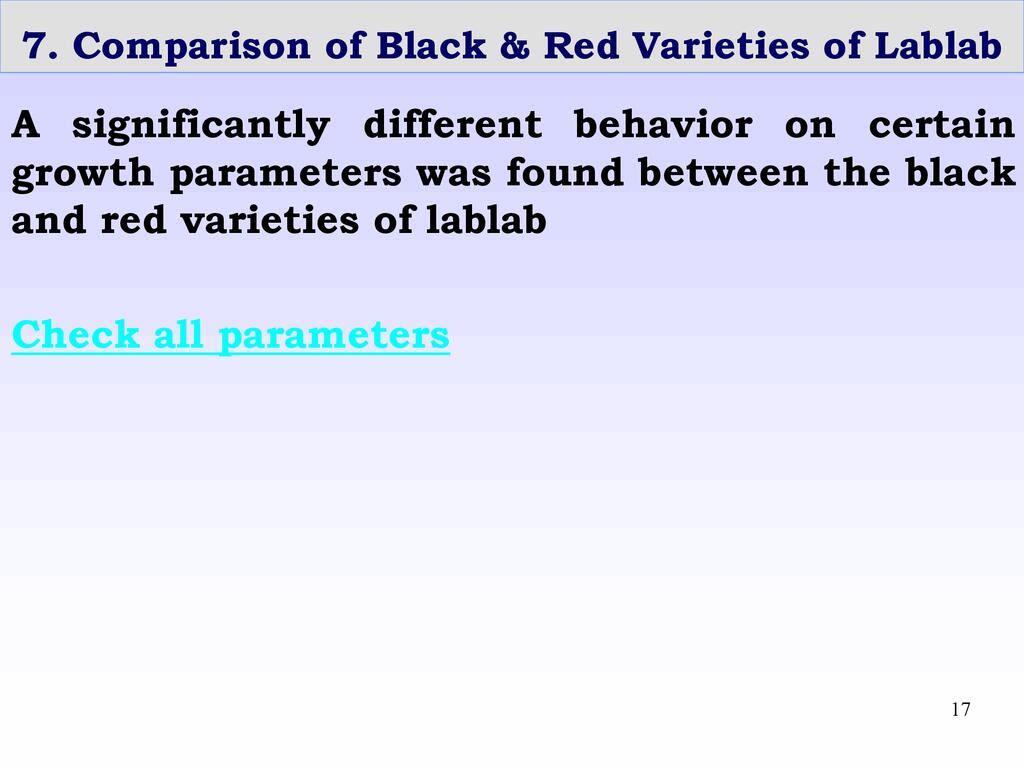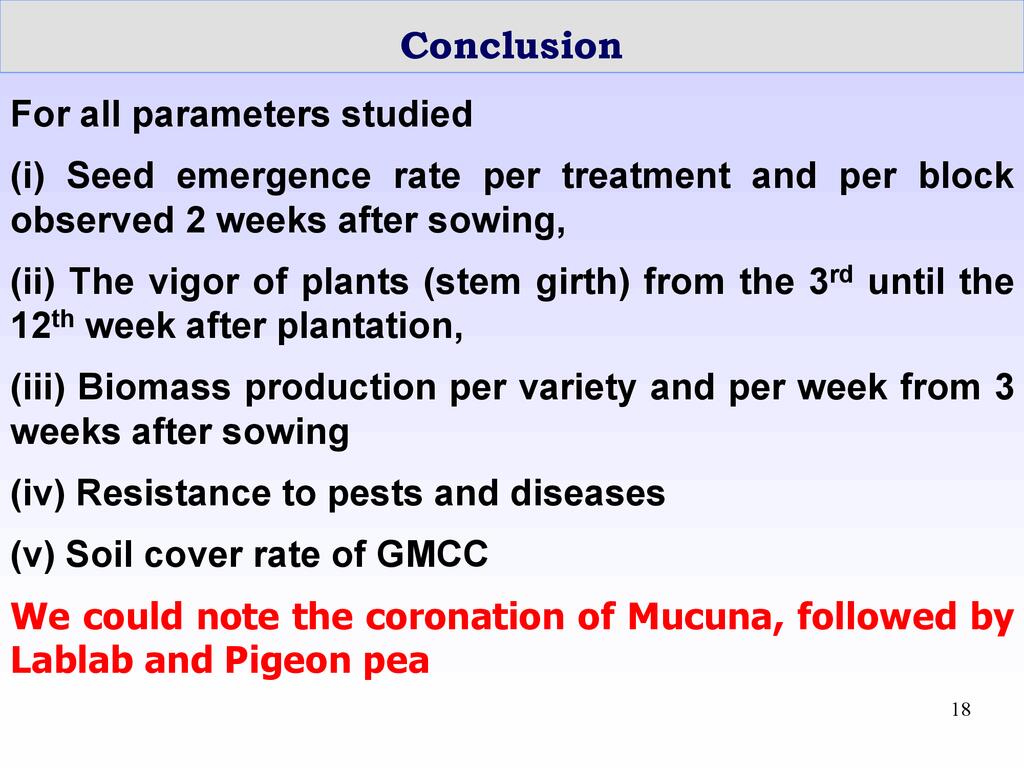Presentado por: Dr. Karangwa Antoine
Evento: 2019 East Africa Highlands Symposium (26/11/2019)
Session: Permanent ground cover is one of the fundamental principles of conservation agriculture. This coverage can be achieved by keeping crop residues on the ground, but if the time between harvest and installation of the next crop is large, it may be necessary to install other cover plants during this interval. The agronomic performance of four varieties of green manure cover crops (Lablab p., Pigeon pea, Cowpea and Velvet bean) was compared to the control in six representative Districts of Rwanda for physical growth, resistance to pests & diseases, soil cover capacity, biomass production and soil fertility. For all analyzed parameters, Velvet bean (Mucuna) was significantly superior over the others on all the experimental sites. This soil cover crop offers the best benefits for (i) soil protection during the fallow period, (ii) mobilization and recycling of nutrients, (iii) improvement of soil structure, i.e., de-compaction of encrusted layers, and (iv) control of weeds and pests.
Dr. Karangwa Antoine, University of Rwanda is a Senior Lecturer in the University of Rwanda Busogo Campus, School of Agriculture and Food Sciences, Department of Agribusiness, Rural Development and Agricultural Economics.He has a PhD in Agronomic Sciences and Biological Engineering with specialization in Economics and Rural Development from the University of Agronomic Sciences of Gembloux/Belgium (currently University of Liège, Gembloux Agro-Bio Tech). He has a distinguished career consulting on agricultural production, rural and agricultural development economics, integrated assessment of agriculture and sustainable development, projects design, management and evaluation, economic modeling of agro-economic, food security system and policy as well as the development of decision aid tools in agriculture. He has a keen interest in conservation agriculture and green manure cover crops.

